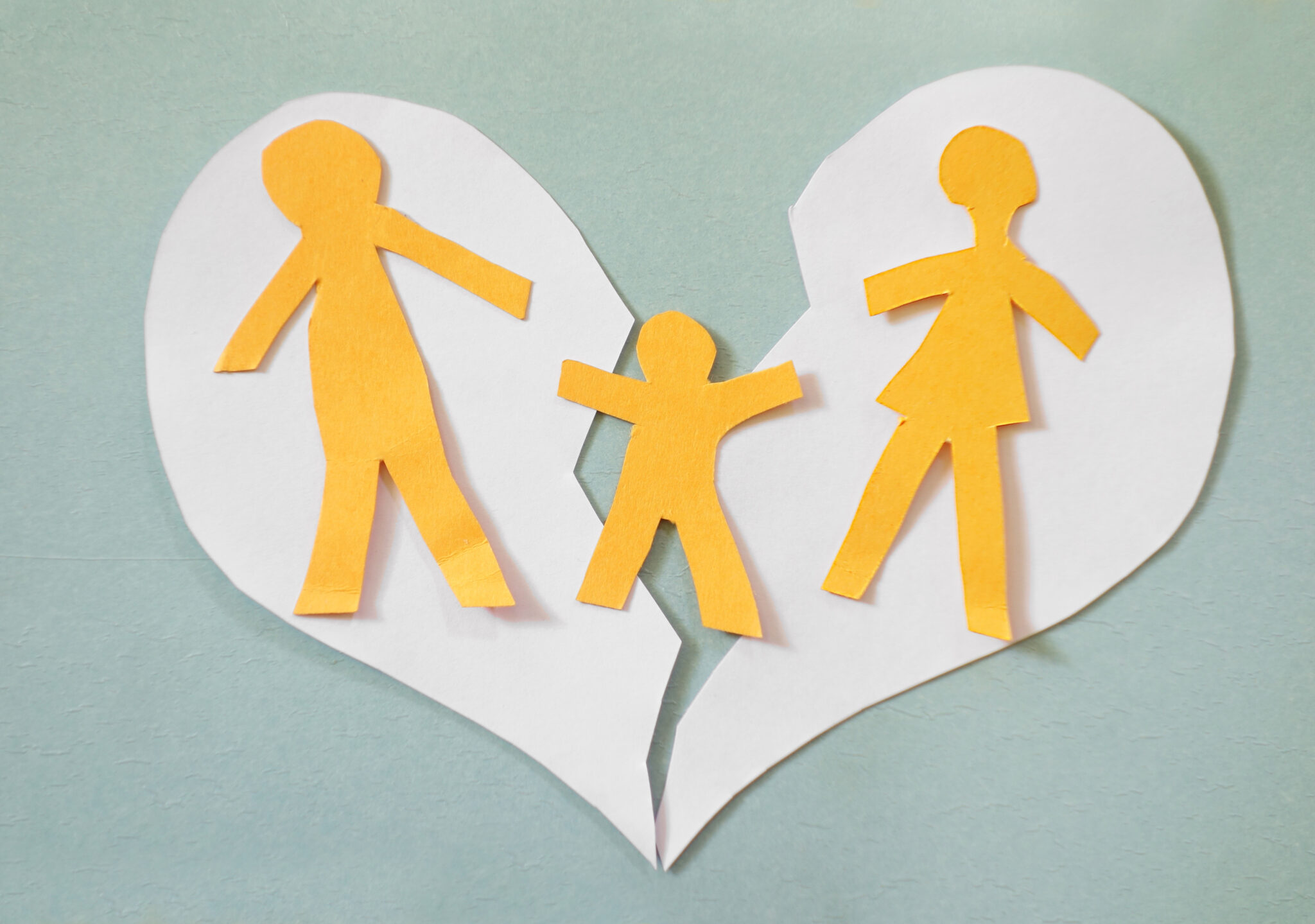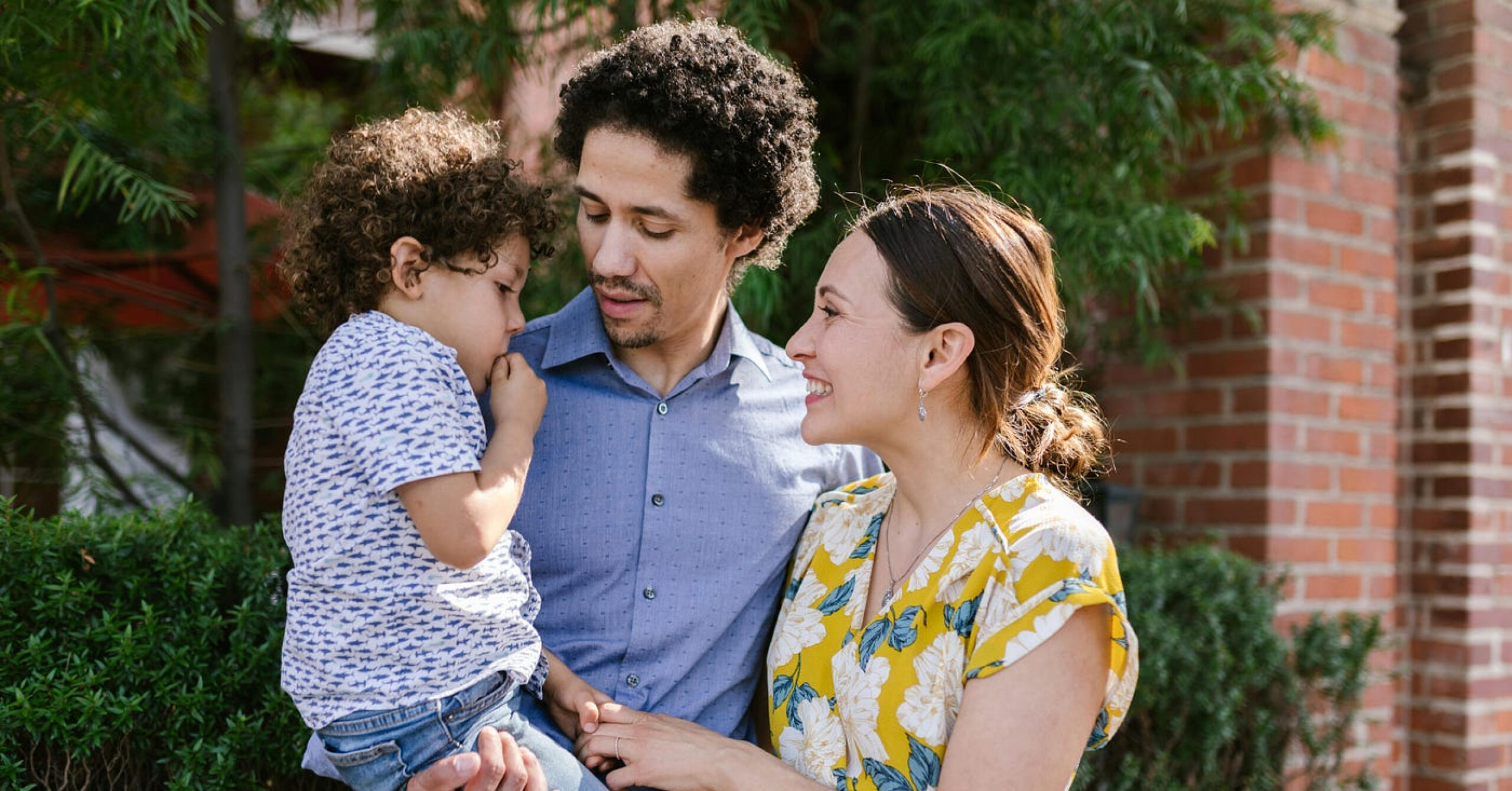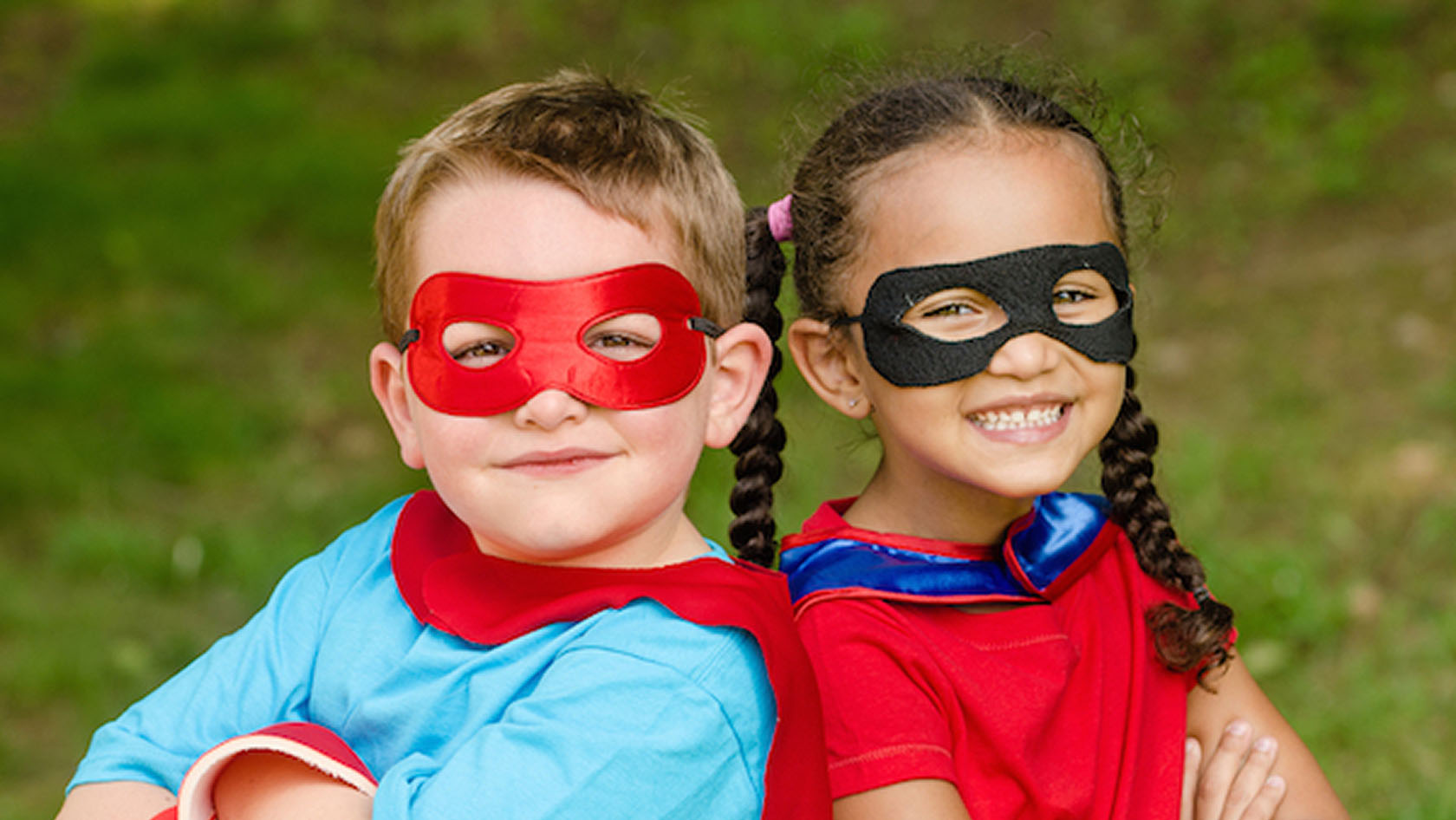Did you know, it’s not the divorce itself that makes things tough for kids?
Fifty years of research shows that it’s the fighting between parents that causes problems. We will explore how you, as parents, can make a positive difference as your kids adjust.
It’s Not the Divorce, It’s Conflict
Imagine being able to affect how your kids adjust to divorce. Thankfully, you have the power to positively impact how your divorce affects your kids. Research tells us the first step is to find ways to reduce conflict.
It’s the high levels of conflict that many parents experience during litigation that negatively impacts how kids cope during this transition.
Mountains of research about the effects of divorce on children shows that kids need closure on their parents’ divorce. And how do children get this closure? When parents choose not to engage in high levels of conflict during divorce.
Keep in mind that some conflict during divorce is normal — the key is your kids seeing both parents put negativity aside, and focus on what’s best for the whole family.
In this article, we will look at and compare the two ways people handle divorce: mediation and litigation.
In mediation, parents work with a mediator to reach agreements without ever going to court. The mediator helps them make decisions that are good for everyone, especially the kiddos. On the other hand, litigation is like a big court battle. Parents hire lawyers, and it can get really stressful for everyone, especially the children. Research shows that court battles can leave kids with emotional scars. How well kids adjust to divorce can depend on how their parents complete the process.
Mediation
First, let’s look at mediation. Mediation is the way to get divorced without ever going to court. An experienced mediator guides parents to reach agreements on every topic. Parents stay in control of their children’s future instead of a Judge making decisions. Mediation allows parents to complete their divorce in a simple, positive and healthy way. While saving time and money, parents can keep conflict low and protect the entire family from harm. And it is successful, even when spouses do not see eye to eye.
Studies show that “parents who use divorce mediation have better relationships with their children than parents who litigate”
Research shows that mediation emerges as the shining ✨ knight in the battle to protect the well-being of kids. Here’s why:
- Kids come first: In mediation, children are placed at the forefront of every conversation. Parents create a plan that meets their children’s unique needs.
- Less stress: Mediation helps keep conflict low. Less arguing – more peace of mind, for both parents and kids.
- Saves money: Mediation is more affordable than going to court. This means more money in the family budget.
- Saves time: Mediation is quicker. Parents control the pace and schedule, rather than having to depend on court timelines.

In the end, when parents work together in mediation, children are better able to adjust to this transition. You are not alone, your mediator is there every step of the way to guide you and keep you on the right track.
Divorce mediation helps parents “better transition to their new co-parenting roles in a healthy way, which helps kids adjust”
Moving in the right direction
Mediation helps parents realize that they can have important talks without erupting a volcano of conflict. This provides a foundation for healthy co-parenting and creates a framework for low-stress talks in the future. Having collaborated to reach agreements, parents are more willing to stick to decisions they crafted in mediation.
Your Aurit Center Certified Mediator is always there for your family. Even as time goes on and the kids grow, parents can come back to mediation to keep conflict low and re-address any relevant issues. Imagine the relief knowing your skilled mediator is always there to help you through any challenging times.
Litigation
Now that you know about the benefits of divorce mediation, let’s take a look at divorce litigation.
Litigation is a process where each parent hires their own divorce attorney. Then, they then battle out their divorce in court. Each spouse fights to “win.” Parents are pitted against each other, leading to high conflict, stress, and hard feelings.

It is estimated that nearly “two million children in the United States over the past two decades have been caught in an endless cycle of their parents’ high-conflict litigation passing in and out of a revolving court door”
Research shows that litigation can put children in harm’s way. Here’s why:
- Stressful: Litigation is stressful for everyone. Kids often feel caught in the middle of their parents’ tug-of-war. This type of conflict has lasting effects.
- Costs More: Litigation is expensive. The legal fees and the time spent in court can leave little money for the family budget. This causes more strain and more stress. Which spills over into the children’s lives.
- Takes More Time: Litigation is time-consuming. The court controls the pace and schedule – not the parents. And the more time spent in court, the more conflict between parents. Kids can feel caught in the crossfire, uncertain about the future and when the battle will end.
- Lack of Control: Litigation often leaves parents and kids feeling powerless. The uncertainty can be overwhelming and lead to anger and frustration. Knowing a judge will make life-changing decisions with limited information can be scary for everyone.
Research shows that when parents fight out their divorce in court, “litigation increases trauma and escalates conflict”
Debunking the myth
We are led to believe – no questions asked – that divorce hurts children.
Well, guess what? As we have discussed, research shows that it’s not the divorce itself that’s causing trouble for kids. The real troublemaker is conflict between the parents. Children have a harder time adjusting when parents are in conflict. So, the answer to the puzzle of how to make things better for the kids is…. by avoiding conflict.
A central cause of children’s poor adjustment post-divorce at five years after the divorce was the failure of the divorce to provide the intended relief
When parents remain at odds after divorce, children are at risk. A healthy co-parenting relationship helps kids adjust. Without that, kids are left to cope with the divorce themselves.
It’s important to note that it is normal to have some conflict in our lives and not all conflict is ‘bad’. When left unchecked, conflict becomes harmful. So, how we handle conflict makes all of the difference. In mediation, parents practice new ways to handle conflict and gain the tools for healthy co-parenting.
The harm of conflict before, during, and after divorce
Let’s take a deeper look at conflict that is harmful to children.
When parents continued fighting after the divorce … children had a great deal of difficulty accepting and integrating the divorce
Kids are like sponges , soaking up information each day. This is why it is so important that they aren’t exposed to harmful conflict–whether it’s before, during, or after divorce. We must remember, and prioritize, our goal of filling children with peace, not pain.
Children whose parents engaged in ‘high levels of conflict’ were found to be overly aggressive or insecure. Witnessing hostility between parents led to aggressive behavior in children for several years following divorce
When there is an ugly court battle, and memories of parenting fighting, kids’ can suffer long after the divorce is final. Parents must keep in mind that this suffering does not end as soon as the judge signs off on the divorce.
Divorce mediation: a kinder, gentler approach
The Aurit Center for Divorce Mediation offers a simple mediation process that encourages open communication and collaboration. It focuses on the best interest of the children and guides and supports parents to reach agreement.
Conflict is “harmful only if the child never experiences the parents resolving it. When parents ‘compromise,’ children avoid the ‘poorer adjustment’ that comes from continuous ‘verbal attacking’”
Empowering families
Decades of research supports the idea that divorce mediation is a more child-friendly approach.
Studies show when parents mediate, kids benefit more in terms of emotional and psychological well-being. They have fewer behavioral problems, do better in school, and have healthier relationships with their parents. In mediation, parents create parenting time schedules that support their kids’ unique needs.
| The American Psychological Association (APA) endorses mediation, stating that it “can be an effective way of addressing child-related concerns, particularly custody and parenting plans.” It highlights mediation’s capacity to “empower families to create their own solutions”. |
Mediation is all about helping parents work together. It keeps everyone on a path toward a bright future.
The Aurit Center for Divorce Mediation offers a free online 1-hour consultation for parents to learn more and get answers to all of their questions. Give us a call today to speak with a Mediation Specialist.
To help you learn more, we offer:
- How To Talk With Your Spouse About Divorce
- Courageous Co-Parenting: The Power of Reframing by Michael Aurit.
To begin preparing for mediation, get your free Complete Divorce Mediation Checklist.
Additional Research
- Children of “high conflict litigants” endure distortions of self-image, passivity, impaired functioning, distorted perspectives about life events, and difficulties in “initiating or completing tasks,” “sustaining intimacy,” and “relating to others”. Bricklin, B. & Elliot G. 2000 as cited in Sauer, J. J., (2007).
- “When children ‘suffer heightened levels of anxiety’ resulting from their parents’ divorce conflict, they develop a shrunken ‘sense of self-worth,’ act more aggressively, and are terrified of their parents’ aggressiveness while oppositely imitating it”. Bricklin & Elliot, (2000).
- “When children are frequently coerced or cajoled into taking sides in parental battles, [this] creates a terrible conflict in them of divided loyalties. Such a tug-of-war greatly compounds children’s difficulties”. Wallerstein & Kelly, 1980, as cited in Saposnek, (1998).
- “When children ‘suffer heightened levels of anxiety’ resulting from their parents’ divorce conflict, they develop a shrunken ‘sense of self-worth,’ act more aggressively, and are terrified of their parents’ aggressiveness while oppositely imitating it”. Bricklin & Elliot, (2000).
- “The more overt the parental conflict, the more disturbed children are likely to be”. Johnson, 1989, as cited in Bricklin, (2000).
- “When children ‘suffer heightened levels of anxiety’ resulting from their parents’ divorce conflict, they develop a shrunken ‘sense of self-worth,’ act more aggressively, and are terrified of their parents’ aggressiveness while oppositely imitating it”, Bricklin & Elliot, (2000). “The better that a parent is able to adjust after divorce, the better a child will be able to adjust. When parents provide a stable environment … children are able to successfully adjust and cope with their parents’ separation”, Saposnek, (1998).
- “The deleterious effects of interparental conflict on children … during the marital separation and after the divorce has been so amply documented that it has become commonplace knowledge…” Emery, 1988, as cited in Saposnek, 1998; Grych & Fincham, (1990).
- As a key form of vulnerability, research has shown that children exposed to high levels of interparental conflict are particularly susceptible to developing social difficulties characterized by peer relationship problems, interpersonal withdrawal, and poor social competence. Goodman, Barfoot, Frye, & Belli, 1999; Kouros, Cummings, & Davies, 2010; Lindsey, Caldera, & Tankersley, 2009; Stocker & Youngblade. (1999).
- Researchers have found that people who are kind and compassionate to themselves have an easier time managing the day-to-day difficulties of divorce. Shaw, L.A. (2010).
- Divorce can be a traumatic experience for children, but research suggests that most children adjust well within two years following the divorce; on the other hand, children often experience more problems when parents remain in high-conflict marriages instead of splitting up. Kelly, J. B. (2005).
- Research shows that mediation can be beneficial for emotional satisfaction, spousal relationships and children’s needs. Kelly, J.B. (2012).
- Ongoing parental conflict increases kids’ risk of psychological and social Problems. Velez, C.E., Wolchick, S.A., Tein, J.Y., and Sandler, I. (2011).
- “Children who experience intense parental conflict are at higher risk for a host of mental health problems, including depression”, Harold & Sellers, (2018).
- “Research shows that high-conflict divorces have an adverse effect on children’s mental health, academic performance, interpersonal relationships and self-esteem,” Christina Iglesia, Psy.D. (2023).
- The Truth about Divorce and Children Robert E. Emery, (2004).
- Family Mediation Research: Is There Empirical Support for the Field? (An Update)- Joan B. Kelly, 2002).





